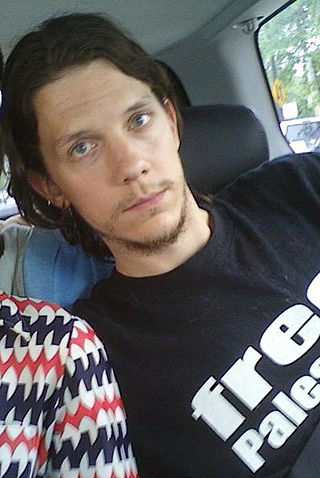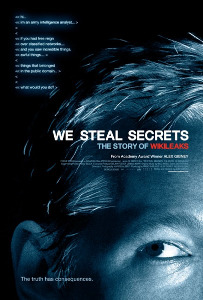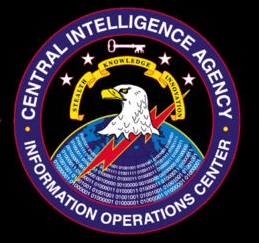
Andy Müller-Maguhn is a member of the German hacker association Chaos Computer Club (CCC). Having been a member since 1986, he was appointed as a spokesman for the club in 1990, and later served on its board until 2012. He runs a company that develops cryptophones.

Hacktivism, is the use of computer-based techniques such as hacking as a form of civil disobedience to promote a political agenda or social change. A form of Internet activism with roots in hacker culture and hacker ethics, its ends are often related to free speech, human rights, or freedom of information movements.
Cryptome is an online library and 501(c)(3) private foundation created in 1996 by John Young and Deborah Natsios closed in 2023 and reopened soon afterward. The site collected information about freedom of expression, privacy, cryptography, dual-use technologies, national security, intelligence, and government secrecy.

Strategic Forecasting Inc., commonly known as Stratfor, is an American strategic intelligence publishing company founded in 1996. Stratfor's business model is to provide individual and enterprise subscriptions to Stratfor Worldview, its online publication, and to perform intelligence gathering for corporate clients. The focus of Stratfor's content is security issues and analyzing geopolitical risk.

Jeremy Alexander Hammond, also known by his online moniker sup_g, is an American anarchist activist and former computer hacker from Chicago. He founded the computer security training website HackThisSite in 2003. He was first imprisoned over the Protest Warrior hack in 2005 and was later convicted of computer fraud in 2013 for hacking the private intelligence firm Stratfor and releasing data to WikiLeaks, and sentenced to 10 years in prison.

WikiLeaks is a non-profit media organisation and publisher of leaked documents. It is funded by donations and media partnerships. It has published classified documents and other media provided by anonymous sources. It was founded in 2006 by Julian Assange. Kristinn Hrafnsson is its editor-in-chief. Its website states that it has released more than ten million documents and associated analyses. WikiLeaks' most recent publication of original documents was in 2019 and its most recent publication was in 2021. From November 2022, numerous documents on the organisation's website became inaccessible. In 2023, Assange said that WikiLeaks is no longer able to publish due to his imprisonment and the effect that US government surveillance and WikiLeaks' funding restrictions were having on potential whistleblowers.

Julian Paul Assange is an Australian editor, publisher, and activist who founded WikiLeaks in 2006. He came to international attention in 2010 after WikiLeaks published a series of leaks from Chelsea Manning, a United States Army intelligence analyst: footage of a U.S. airstrike in Baghdad, U.S. military logs from the Afghanistan and Iraq wars, and U.S. diplomatic cables. Assange has won multiple awards for publishing and journalism.

Operation Payback was a coordinated, decentralized group of attacks on high-profile opponents of Internet piracy by Internet activists using the "Anonymous" moniker. Operation Payback started as retaliation to distributed denial of service (DDoS) attacks on torrent sites; piracy proponents then decided to launch DDoS attacks on piracy opponents. The initial reaction snowballed into a wave of attacks on major pro-copyright and anti-piracy organizations, law firms, and individuals. The Motion Picture Association of America, the Pirate Party UK and United States Pirate Party criticised the attacks.
The United States diplomatic cables leak, widely known as Cablegate, began on Sunday, 28 November 2010 when WikiLeaks began releasing classified cables that had been sent to the U.S. State Department by 274 of its consulates, embassies, and diplomatic missions around the world. Dated between December 1966 and February 2010, the cables contain diplomatic analysis from world leaders, and the diplomats' assessment of host countries and their officials.
HBGary is a subsidiary company of ManTech International, focused on technology security. In the past, two distinct but affiliated firms had carried the HBGary name: HBGary Federal, which sold its products to the US Government, and HBGary, Inc. Its other clients included information assurance companies, computer emergency response teams, and computer forensic investigators. On 29 February 2012, HBGary, Inc. announced it had been acquired by IT services firm ManTech International. At the same time, HBGary Federal was reported to be closed.
WikiLeaks, a whistleblowing website founded by Julian Assange, has received praise as well as criticism from the public, hacktivists, journalist organisations and government officials. The organisation has revealed human rights abuses and was the target of an alleged "cyber war". Allegations have been made that Wikileaks worked with or was exploited by the Russian government and acted in a partisan manner during the 2016 U.S. presidential election.
On 5 July 2012, WikiLeaks began publishing what it called the Syria Files, a collection of more than two million emails from Syrian political figures and ministries and from companies including Finmeccanica and Brown Lloyd James dating from August 2006 to March 2012. The emails were hacked by Anonymous before being given to WikiLeaks for release.

We Steal Secrets: The Story of WikiLeaks is a 2013 American independent documentary film about the organization established by Julian Assange, and people involved in the collection and distribution of secret information and media by whistleblowers. Directed by Alex Gibney, it covers a period of several decades, and includes background material. Gibney received his fifth nomination for Best Documentary Screenplay from the Writers Guild of America Awards for this film.

Phineas Fisher is an unidentified hacktivist and self-proclaimed anarchist revolutionary. Notable hacks include the surveillance company Gamma International, Hacking Team, the Sindicat De Mossos d'Esquadra and the ruling Turkish Justice and Development Party, three of which were later made searchable by WikiLeaks.
The 2016 Democratic National Committee email leak is a collection of Democratic National Committee (DNC) emails stolen by one or more hackers operating under the pseudonym "Guccifer 2.0" who are alleged to be Russian intelligence agency hackers, according to indictments carried out by the Mueller investigation. These emails were subsequently leaked by DCLeaks in June and July 2016 and by WikiLeaks on July 22, 2016, just before the 2016 Democratic National Convention. This collection included 19,252 emails and 8,034 attachments from the DNC, the governing body of the United States Democratic Party. The leak includes emails from seven key DNC staff members dating from January 2015 to May 2016. On November 6, 2016, WikiLeaks released a second batch of DNC emails, adding 8,263 emails to its collection. The emails and documents showed that the Democratic Party's national committee favored Hillary Clinton over her rival Bernie Sanders in the primaries. These releases caused significant harm to the Clinton campaign, and have been cited as a potential contributing factor to her loss in the general election against Donald Trump.
In March 2016, the personal Gmail account of John Podesta, a former White House chief of staff and chair of Hillary Clinton's 2016 U.S. presidential campaign, was compromised in a data breach accomplished via a spear-phishing attack, and some of his emails, many of which were work-related, were hacked. Cybersecurity researchers as well as the United States government attributed responsibility for the breach to the Russian cyber spying group Fancy Bear, allegedly two units of a Russian military intelligence agency.

Vault 7 is a series of documents that WikiLeaks began to publish on 7 March 2017, detailing the activities and capabilities of the United States Central Intelligence Agency (CIA) to perform electronic surveillance and cyber warfare. The files, dating from 2013 to 2016, include details on the agency's software capabilities, such as the ability to compromise cars, smart TVs, web browsers including Google Chrome, Microsoft Edge, Mozilla Firefox, and Opera, the operating systems of most smartphones including Apple's iOS and Google's Android, and computer operating systems including Microsoft Windows, macOS, and Linux. A CIA internal audit identified 91 malware tools out of more than 500 tools in use in 2016 being compromised by the release. The tools were developed by the Operations Support Branch of the CIA.

Emma Best is an American investigative reporter and whistleblower. They gained national attention for their work with WikiLeaks and activist Julian Assange. Best is known for prolific filing of Freedom of Information Act (FOIA) requests on behalf of MuckRock and co-founding the whistleblower site Distributed Denial of Secrets (DDoSecrets).











